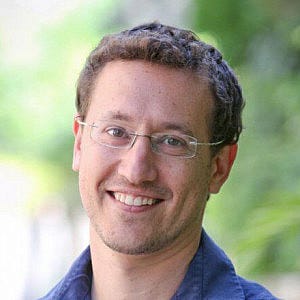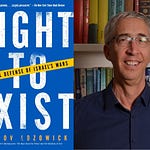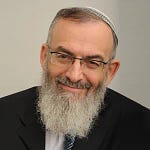Shortly after Israel’s new government was elected, and long before judicial reform took up all the oxygen in the proverbial room, the coalition announced plans to emend Israel’s famous Law of Return (one of the earliest laws the country ever passed) and to get rid of the “grandparent clause.”
The “grandparent clause” allows one to make aliyah to Israel as a Jew even if only one of one’s grandparents was Jewish. Of course, according to Jewish law, having a Jewish maternal grandmother would make you halakhically Jewish; but none of the other three would.
So why would the Law of Return be so permissive? As we learn in today’s podcast episode (moved up from the usual Wednesday), the Law of Return, first of all, is not as unique to Israel as we might assume; other countries have versions of repatriation laws. And the original Law of Return did not define who counts as a Jew, which raised numerous problematic issues related to citizenship (i.e., with intermarried couples, how should the children be registered?)
Already from Israel’s earliest years, the Law of Return raised the question of “what is the Jewish collective?”. Mapai, Ben-Gurion’s founding party, saw the Jewish collective as a national, secular collective of a people with no necessary connection to religiosity, whereas the religious leadership viewed the Jewish collective through a halakhic lens.
In 1970, the Knesset emended the law in a few ways. Clause 4B states that for the purpose of the Law of Return, Jew means a person who was born to a Jewish mother or has become converted to Judaism and who is not a member of another religion. Clause 4A goes went even further, expanding the definition to include family members of Jews who were not Jews themselves, but might also be eligible to make Aliyah. This amendment stated that the rights of a Jew under this law are extended to a child and a grandchild of a Jew, the spouse of a Jew, the spouse of a child of a Jew and the spouse of a grandchild of a Jew, except for a person who has been a Jew and has voluntarily changed his religion.
In other words, you’re eligible under the law of return (not Jewish) if any one of your four grandparents was Jewish or you’re married to someone in the category.
Many American Jews, upon hearing that Israel’s right wing government was about to change the Law of Return were certain that the changes were directed at them. Former Minister of Diaspora Affairs, Nachman Shai, said that changing the law might rupture relations with American Jews.
Yes as we heard in our recent interview with Alex Riff of the One Million Lobby, which represents Israeli immigrants of Russian extraction, the proposed changes actually have little to do with American Jews, but rather, are directed at Jews from Russia and Ukraine, who are coming to Israel in numbers far higher than those coming from America, and who are, overwhelmingly, not Jewish. As some of those in favor of changing the Law say, Israel’s policy “essentially imports intermarriage” (a phenomenon they oppose, of course).
To make sense of all of this for us, we reached out to Regev Ben-David, an expert on the Law of Return. Regev teaches and directs adult Jewish learning programs, mostly with the Beit Midrash Israeli—Ein Prat. He is a researcher in the fields of religion and state in Israel, contemporary Jewish identities, and Israel-Diaspora relations. Regev received his MA in Political Science from Bar-Ilan University and a BA in Psychology and Amirim Liberal Arts program from Hebrew University. He serves on the boards of the Metzilah think tank and Rashut HaRabim, an umbrella organization for pluralistic Jewish organizations in Jerusalem. Regev is married to Sygall and they have two children.
We learned a great deal from Regev, and hope that you will, too.
The link above will take you to a brief excerpt of our conversation; the full conversation, along with a transcript for those who prefer to read, is being made available to paid subscribers to Israel from the Inside.
Substack has added a feature called “Notes,” which are for brief postings. Notes do not get to your inbox, so check the website periodically. We’ve already posted one note about an Israeli drone photographer who just won an international competition. If you look at the photo, you’ll see why!
This week and next, we will be reversing the order of our weekly postings. The podcast (or excerpt) will appear on Monday, and the written column on Wednesday. After that, we return to our regular schedule.
Impossible Takes Longer is now available on Amazon and Barnes & Noble and at other booksellers.
Music credits: Medieval poem by Rabbi Shlomo Ibn Gvirol. Melody and performance by Shaked Jehuda and Eyal Gesundheit. Production by Eyal Gesundheit. To view a video of their performance, see this YouTube:
Our twitter feed is here; feel free to join there, too.





















